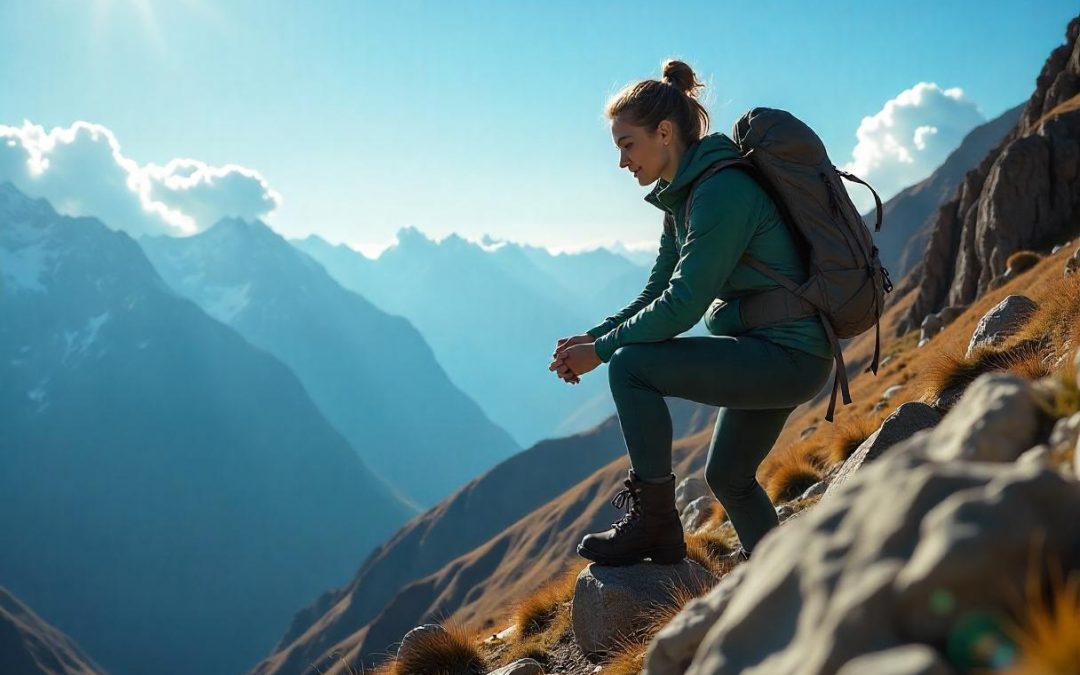A visit to the Himalayas can be dreams of most people as it offers beautiful scenery while hiking. But high altitude trekking also has some requirements in order to facilitate the physical demands since the cruising altitude of AMS is 3000m and above and other altitude fitness risks. However, it’s important to prepare your frame for such scenarios before you venture in this exciting endeavor. A sports medical certificate isn’t most effectively obligatory for some Himalayan hiking agencies; however , it also offers surety of your health to deal with the demanding calls for excessive altitude trekking .
Why Do You Need a Sports Medical Certificate for High-Altitude Trekking?
High-altitude trekking locations have precise stresses at the frame due to lower oxygen degrees, excessive temperatures, and challenging terrain. For the Himalayas, even seasoned adventurers want to be in top fitness, as commonplace altitude risks consist of headaches, nausea, shortness of breath, and, in severe cases, altitude sickness that can be life-threatening.
A sports medical certificate ensures that a healthcare company has reviewed your bodily fitness and determined that your body is ready for high-altitude exertion. Here are a few motives why this certification is essential:
Safety and Preparedness: Knowing which you’re bodily able to deal with high-altitude situations reduces the threat of significant fitness troubles during your trek.
Adventure Requirements: Many hiking businesses and excursion companies require sports medical certificates to make sure all contributors are physically capable.
Personal Peace of Mind: A clean bill of fitness affords self belief that your frame can resist the altitude, temperatures, and rugged terrain of the Himalayas.
What to Expect in a High-Altitude Health Screening
A sports medical certificate for a high-altitude trek entails a comprehensive health screening. This examination makes a speciality of key regions that impact your capacity to address altitude changes, patience, and exertion. Here’s what to expect:
1. Cardiovascular Assessment
At high altitudes, your cardiovascular gadget needs to paint harder to atone for decreased oxygen degrees. This assessment evaluates your coronary heart and lung health to make sure they’re strong enough to address the bodily strain of high-altitude trekking. Tests can also encompass an EKG or different cardio-respiration evaluations.
2. Lung Function Tests
Oxygen stages are lower at excessive altitudes, making sturdy lung function critical for safe hiking. Lung function exams, including spirometry and other breath tests, evaluate your breathing health to make certain your lungs can adapt to low-oxygen environments.
3. Endurance and Muscle Strength Test
High-altitude hiking calls for an excessive degree of endurance and physical fitness. Many health screenings will investigate your stamina, muscle power, and persistence to confirm that your body can manage the physical needs of the trek each day.
4. Mental Health Evaluation
Trekking at high altitudes may be mentally hard. Some screenings may encompass a primary intellectual fitness evaluation, focusing on your resilience and psychological readiness for the needs of the trek.
These exams collectively determine whether or not you’re suited for high-altitude trekking and ensure you’re bodily prepared to address the capability fitness dangers related to such an adventure.
Conditions That May Require Extra Caution for High-Altitude Adventures
While many people are cleared for excessive-altitude treks, sure fitness conditions require extra warning. Here are a few medical conditions that may want further evaluation or specialised clearance earlier than you could be issued a sports medical certificates for a Himalayan trek:
Asthma or Respiratory Conditions: Breathing at excessive altitudes can be difficult, specifically for people with current breathing problems. A thorough lung function taken care of is vital to ensure protection.
Heart Conditions: Conditions which include excessive blood pressure, coronary heart arrhythmias, or a record of heart ailment can also pose considerable risks at high altitudes.
Diabetes: Diabetes could make managing physical exertion and changing conditions greater hard, especially if insulin storage is stricken by altitude and temperature.
Mental Health Concerns: Anxiety, melancholy, or other mental health concerns ought to be carefully taken into consideration, because the isolation and bodily strain of high-altitude treks can make those troubles bigger.
If you have any of these situations, your health practitioner may endorse additional exams or provide opportunity hints based totally on your precise fitness profile.
Preparing Physically and Mentally for the Himalayas
Even with an easy medical bill of health, preparing your body and thoughts for a high-altitude trek is crucial. Training and acclimatization can play a big function in how nicely you handle the Himalayas. Here are some preparation hints:
Cardio Training: Engage in cardiovascular exercises like running, swimming, or biking to improve coronary heart and lung capacity. Hiking at high elevations calls for strong aerobic fitness, so this step is critical.
Strength Training: Focus on building lower body and middle power, as those muscular tissues will bring the most stress at some stage in the trek. Squats, lunges, and middle physical games can be beneficial.
Gradual Acclimatization: If possible, spend time at better elevations to permit your body to alter regularly to lower oxygen degrees. This step can appreciably reduce the risk of altitude sickness.
Mental Preparation: Preparing for ability isolation, excessive weather, and lengthy hours of exertion is key. Consider meditation or mindfulness physical games to assist construct intellectual resilience for hard conditions.
How to Obtain a Sports Medical Certificate for Your Himalayan Adventure
Obtaining a sports medical certificate for a high-altitude trek is straightforward, mainly with online services like MedicalCertificate.In that offer digital consultations. Here’s how you can get your certificate before embarking for your Himalayan journey:
- Access MedicalCertificate.In: Visit the MedicalCertificate.In website to register or log in for your account. Select the Sports Medical Certificate option to begin the system.
- Complete the Pre-Consultation Health Questionnaire: You’ll be asked to finish a questionnaire detailing your bodily circumstance, beyond medical records, and any unique health concerns. For high-altitude hiking, this information facilitates your physician examining key regions of health.
- Book Your Online Consultation: Schedule an online appointment with an authorized medical doctor who will perform a digital consultation. During this session, you’ll speak about your deliberate trek, the altitude, and any health worries particular to high-altitude conditions.
- Undergo a Health Assessment: Based on your responses and session, the medical doctor may additionally guide you through fundamental exams and ask questions to evaluate your cardiovascular health, lung capability, and patience.
- Receive and Download Your Sports Medical Certificate: If the physician finds you in shape for the trek, they’ll issue a digital sports medical certificate. You can download the certificates without delay from MedicalCertificate.In and post it in your hiking institution or tour provider.
With MedicalCertificate.In, the technique is efficient, allowing you to complete the entirety from the comfort of your own home and focus on making ready for your journey.
Conclusion: Your Health, Your Adventure
A Himalayan trek is a journey of a lifetime, but ensuring you’re absolutely organized is important for a secure and enjoyable revel in. By obtaining a sports medical certificate, you’re no longer the simplest assembly trek requirements however, also confirming that your frame is prepared to face the particular demanding situations of high altitudes.
Through structures like MedicalCertificate.In, getting a medical certificate is now simple, permitting you to pay attention to bodily schooling and mental coaching. With the proper fitness, documentation, and mind-set, your adventure via the Himalayas may be each exciting and safe. Remember, a bit of instruction goes a protracted way in making the most of your Himalayan journey!

